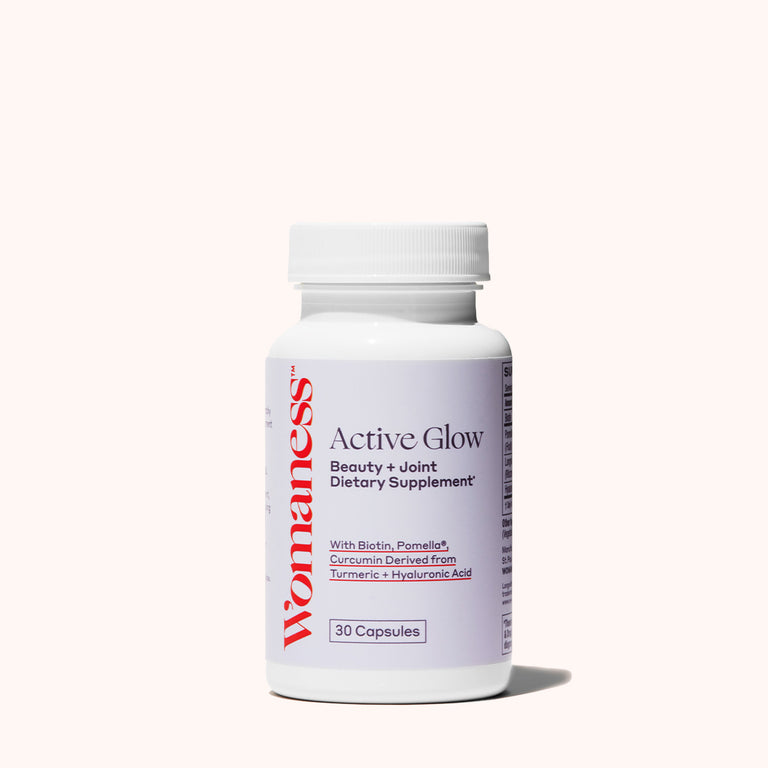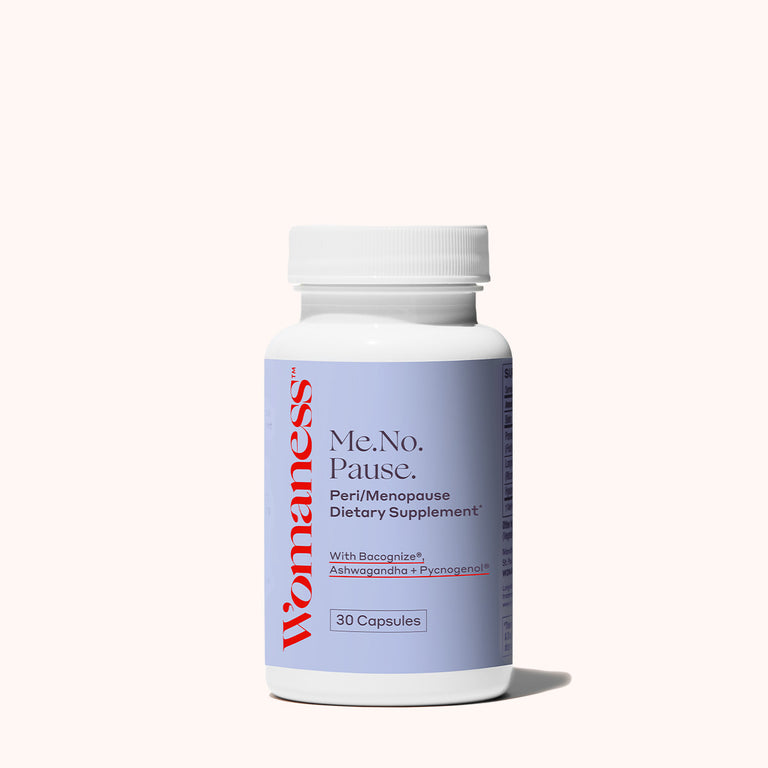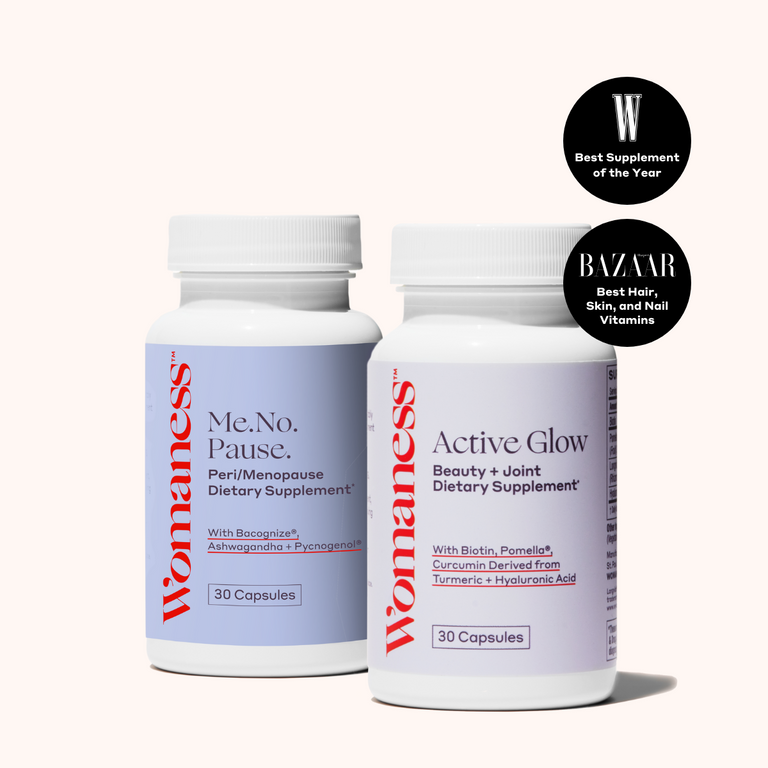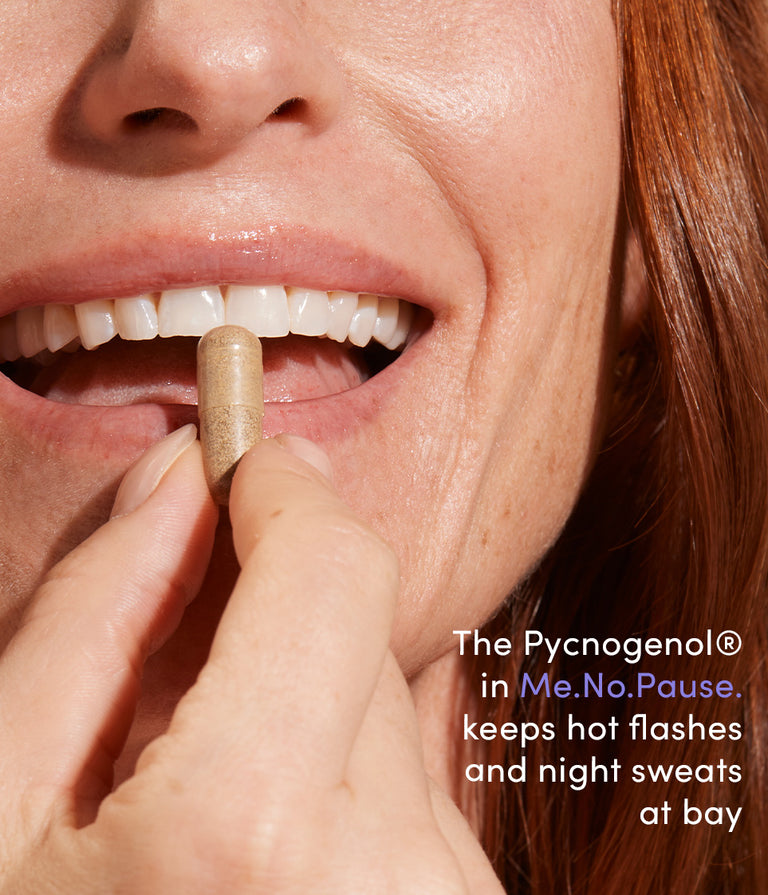By Womaness Editors 4-Minute Read

Sure, the transition to menopause may mess with your sleep, skin, and sex life—but did you know it’s eyeballing your bone health, too? Estrogen keeps your bones resilient, and when levels drop, density can follow. The fix: a few everyday strategies that help your frame stay fierce, flexible, and fracture-free (the way you deserve to be).
7 Ways to Support Bone Health in Menopause
It’s true: you may not be able to regain the bone density you had at 25. But you can slow loss (and in some cases, even improve bone strength) with smart, consistent, good-for-you habits. Here’s where to start.
1. Prioritize Calcium & Vitamin D
Declining estrogen in menopause makes it harder to absorb calcium, which can set the stage for bone loss. Double down on calcium-rich foods (think dairy, leafy greens, fortified foods) and get enough vitamin D through sunlight, fatty fish, and supplements.
2. Embrace Weight-Bearing Exercises
Walking, jogging, dancing, and strength training aren’t just good for your mood—they’re proven to stimulate bone formation and boost density by 1–2%. Layer on resistance training for an extra edge.
3. Keep Lifestyle Habits in Check
Smoking and heavy drinking both weaken bones and increase your risk of osteoporosis. Maintaining a healthy weight and skipping low-calorie diets also helps protect density.
4. Ask About Bone Density Testing
Bone density scans (like a DXA) can reveal risks early and help you and your provider map out a plan. Screenings are generally recommended for women starting at age 65 or even sooner if you have risk factors.
5. Discuss Hormone Therapy with Your Doctor
Hormone therapy isn’t for everyone, but it’s worth a conversation. Estrogen replacement can help manage menopausal symptoms and is one of the most effective options for bone health. Ask your provider if it’s right for you.
6. Eat a Nutrient-Packed Diet
Calcium and vitamin D are key, but don’t forget magnesium, vitamin K, and phosphorus. Whole foods like legumes, nuts, and leafy greens give your bones a nutrient-rich foundation.
7. Stay Informed and Proactive
Knowledge is power: keep up with research, know your personal risks, and partner with your healthcare provider on the prevention strategies you'll need.
"Menopause may change your bone health, but it doesn’t have to define it. With the right steps, you can stay strong, steady, and ready for whatever’s facing you in this next phase of life."
How does menopause affect bone density and up my risk of osteoporosis?
Estrogen protects bone by supporting formation and slowing breakdown. When estrogen drops, bone loss speeds up—making osteoporosis and fractures more likely. The earlier you know your risks, the better prepared you’ll be.
What are the best exercises for bone health in menopause?
Weight-bearing and strength-training exercises are your bone-health MVPs. Walking, jogging, dancing, aerobics, lifting weights, or using resistance bands can all stimulate new bone growth and keep existing bone strong. Work with a pro if you’re new to strength training or want a plan tailored to you.
Can I actually regain any lost bone density?
Completely reversing bone loss isn’t easy—but you can strengthen what you have. With regular exercise, a smart diet, and lifestyle shifts, many women see improvements. Just know: this IS a long game. It can take months (or years) to notice measurable changes, which is why early action matters.
The bottom line? Menopause may change your bone health, but it doesn’t have to define it. With the right steps, you can stay strong, steady, and ready for whatever’s facing you in this next phase of life.
More For You
How to Start Exercising
3 Lower Body Exercises for Your Workouts
Food to Eat (and Avoid) to Improve Menopause Symptoms






